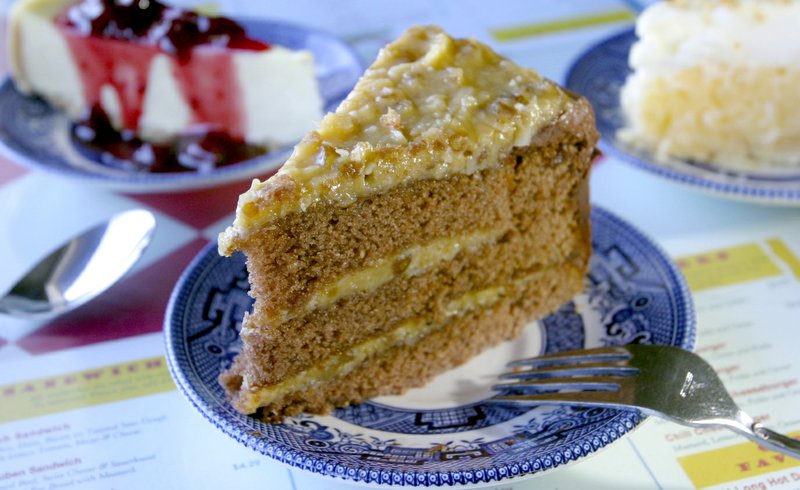Just for the fun of it, I was looking around for terms that use foreign nationalities as adjectives.
I wasn't looking for the obvious ones such as Turkish delight (a confection from Turkey), Irish stew (a stew from Ireland) and Mexican hairless dog (a canine from ... Mexico), but I found some of those.
French cuffs are folded cuffs, and they are from France. The French name for them, though, translates as "musketeer cuffs." (I don't think we can deny that sounds cooler than "French cuffs.")
Belgian waffles are treats from Belgium, and, if they could speak, they'd call our American waffles "wimpy."
Mexican jumping beans are from Mexico. A moth larva that takes refuge in the seeds from a kind of tree moves around inside the seed while eating and causes it to jump. Eventually, moths emerge.
I found that many of the named items didn't originate in those nations but had some connection.
Bermuda grass didn't originate in Bermuda, but in Africa. But it grows well in warm climates, including Bermuda. I suppose it could have been named "grass that thrives in warm climates all over the world between 45 degrees south and 45 degrees north latitude," but "Bermuda grass" is, admittedly, more succinct.
Swiss chard doesn't grow in Switzerland, but the Swiss scientist who named the vegetable from Sicily decided that "Swiss chard" would sound better. I wonder why.
German chocolate cake is not from Germany. German's sweet chocolate was named after chocolate-maker Sam German, who created it. The first newspaper to print a recipe for the chocolate cake topped with coconut-pecan frosting messed up. Someone in the printing process forgot the apostrophe-s. The incorrect name stuck.
A couple of terms come from the intent to insult.
Spanish moss is neither moss nor Spanish. It grows on trees without harming the host plants. (Mysteriously, it's in the same family as the pineapple.) American Indians named it "tree hair," which accurately describes the wispy growth.
The French explorers decided to name it after their New World exploration rivals. Their name translated to "Spanish beard." As a beard, the Spanish moss would look somewhat unkempt, I suppose. The Spanish explorers responded with an early version of the kid's taunt, "Oh, yeah?" They decided to call it "French hair."
Both phrases died in time, but "Spanish moss" remained.
A "French leave" is an abrupt departure. It likely originated from the 18th-century French habit of leaving a gathering without saying goodbye to one's host. The British used the phrase to show disdain. Then, the French turned it around amid the Seven Years War with an expression that translated as "to escape in style of the English." French leave came to mean going AWOL, in Britain anyway.
The Dutch take a verbal beating in these foreign-country phrases. So many of these expressions are insulting.
Some of the pejorative meanings come from 17th-century England, when the English and Dutch were battling fiercely.
Some of the expressions don't seem bad at first.
Double Dutch is that riveting, jump-roping game that I always wished I could master. It apparently also is a synonym for gibberish. Well, I suppose to a person who doesn't speak Dutch, it sounds like gibberish. But I'd
say the same for the other languages I don't know.
But many of the terms are clearly mean and not at all politically correct.
A Dutch treat isn't a treat at all. You have to pay for your food when you're out with friends.
Dutch courage suggests that the courage you show comes from alcohol.
A Dutch uncle is someone not related to you but who feels free to rebuke you.
A Dutch defense means you betray someone.
Also, I found a huge number of terrible terms for women that I won't relay.
Holland's tourism people recognize this lingual prejudice. Several years back, Charel van Dam, marketing manager at The Netherlands Board of Tourism and Conventions, noted, "In the English language, when something was going wrong, they put the word Dutch in front of it."
If anyone can tell me about this phenomenon, please do.
And, if you have been able to navigate my Spanish-mosslike stream of consciousness through this column, I salute you.
Sources: World Wide Words, Oxford Dictionaries, Merriam-Webster, BakingBites, Health24, Dictionary.com, Nature and More, Beaufort County Library, Blue Planet Biomes, National Geographic, The Phrase Finder, New Netherland Institute, The New York Times.
bkwordmonger@gmail.com
Style on 04/29/2019
